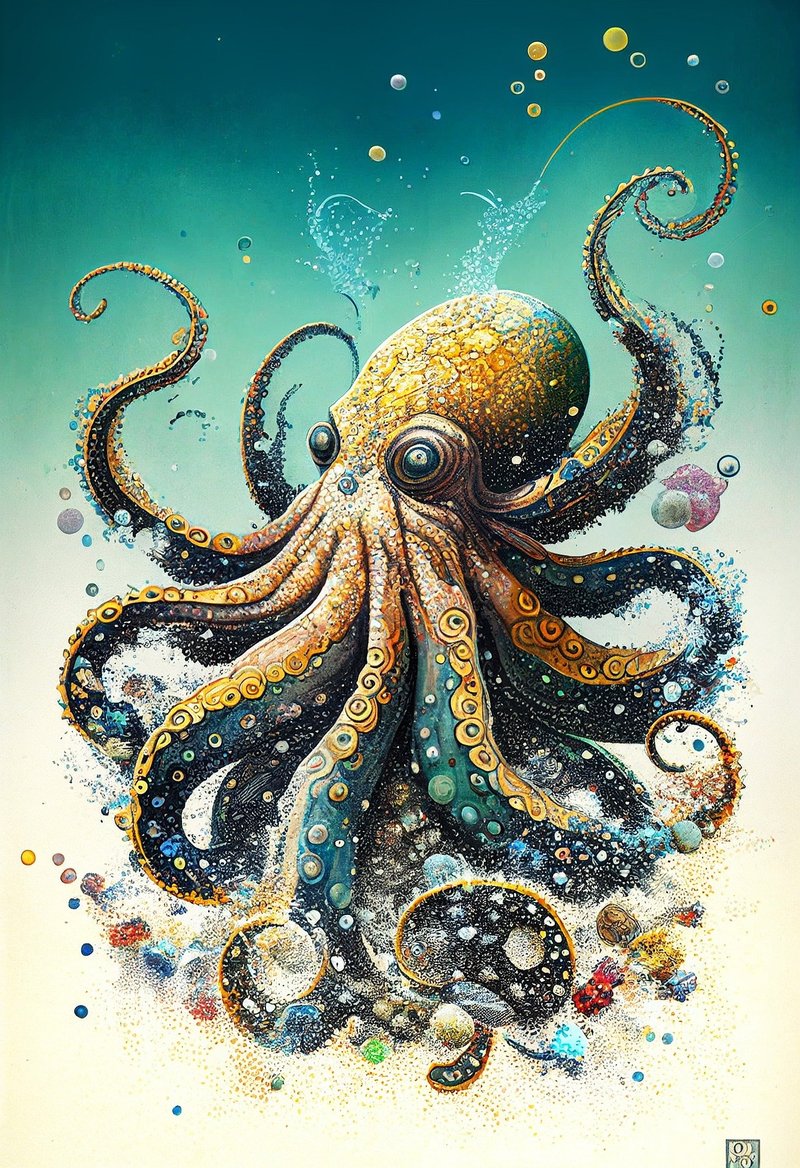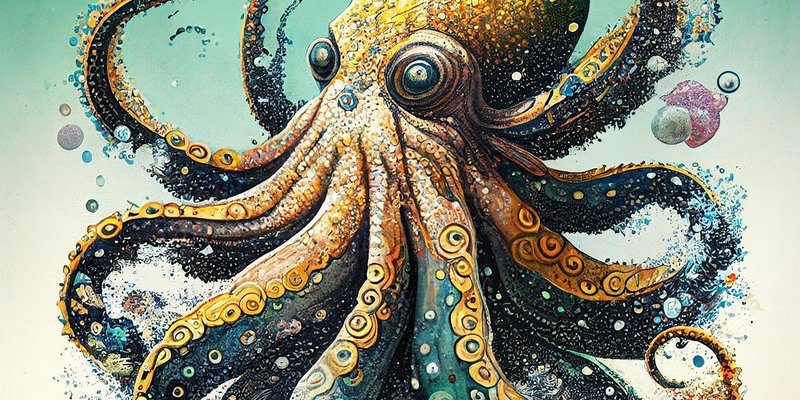
You might be wondering where these stories come from. They often reflect how we see the unknown and the unexpected in nature. From ancient folklore to modern tales, the octopus has inspired a mix of fear, wonder, and respect. So, let’s dive into some of these fascinating myths and beliefs. Who knows? You might find a new favorite story about this captivating creature!
Ancient Myths About Octopuses
Many cultures throughout history have woven the octopus into their myths. In ancient Greek mythology, for instance, there’s the tale of *Kraken*, a gigantic sea monster said to resemble an octopus or squid. Sailors would spin yarns about this beast dragging entire ships down to the depths of the ocean. Honestly, the idea of a creature with such immense power symbolizes the mystery of the deep sea, showing how little we knew (and still know) about the ocean’s depths.
In the Pacific Islands, the octopus also plays a significant role in legends. Some tribes view it as a symbol of wisdom and adaptability. Local stories often depict octopuses as clever tricksters, using their exceptional intelligence to outwit opponents. You might hear tales of how they escape predators or solve complex puzzles in ways humans couldn’t fathom. These stories mirror the aquaculture beliefs of many indigenous people, highlighting the octopus as a creature worthy of respect and reverence.
Octopuses in Folklore
Folklore is where the octopus often steps into the realm of the supernatural. In various cultures, it has been associated with spiritual transformations. For example, in some African cultures, the octopus is seen as a symbol of creativity and resourcefulness. It’s believed that the creature can teach humans to adapt and thrive in challenging circumstances. Imagine the octopus effortlessly navigating rocky crevices—the very image inspires resilience in our own lives.
However, not all folklore painted the octopus in a flattering light. In some coastal communities, it’s considered an omen. If an octopus is spotted near shore, it’s said to foreshadow a storm or misfortune. These beliefs might stem from the unpredictable nature of the sea and the octopus as a reminder of its power. Here’s the thing: the ocean can be beautiful, but it’s also treacherous, and the octopus symbolizes the delicate balance between admiration and fear of nature’s fury.
Octopus Symbolism in Various Cultures
Octopuses are more than just creatures of the sea; they symbolize various traits and ideas across cultures. In Japanese culture, for instance, octopuses are often associated with creativity and intelligence. They appear in countless *manga* and anime, showcasing their cleverness and adaptability. A beloved character from *One Piece*, for example, has octopus-like qualities, emphasizing this creature’s cleverness in navigating complex challenges.
In contrast, in some Mediterranean cultures, octopuses can symbolize emotional depth or the complexity of human relationships. Think about how an octopus uses its arms to interact with its surroundings—this touching image resonates with how humans embrace connections in our lives. The juxtaposition of the octopus’s beauty and its hidden depths reflects our own emotional complexities.
The Octopus and Its Mystique
The mystique surrounding the octopus goes beyond stories; it spills over into scientific observation too. You might be wondering why an octopus is often seen as an enigma. For starters, their intelligence is unmatched in the animal kingdom. They can use tools, solve mazes, and even escape tanks at aquariums—talk about impressive! This remarkable intelligence has led to various myths, including that they possess magical powers or extraordinary abilities, like shapeshifting.
The octopus’s ability to change color and camouflage itself only adds to this mystique. People often attribute these skills to supernatural origins. You can almost picture ancient sailors mistaking the sudden appearance of a camouflaged octopus for magic. This ability to blend into any environment symbolizes adaptability and survival—traits that resonate deeply with humanity’s own search for resilience.
Modern Myths and Misunderstandings
In contemporary culture, octopuses still capture our imagination, though they often face a mix of adoration and misunderstanding. Some might picture a giant, terrifying monster lurking in the depths, while others know them as fascinating creatures of intelligence. However, there are modern myths that paint octopuses in a negative light, often based on sensational media portrayals.
For instance, many people believe that octopuses are highly dangerous and aggressive. While it’s true that some species can be venomous, they are generally shy and avoid confrontation. Here’s the truth: most octopuses would rather hide than engage in a battle. Misunderstandings like these reveal how vital it is to educate ourselves about the real nature of these amazing creatures.
Octopuses in Popular Culture
Octopuses have made quite an impact in popular culture, from movies to literature. Who can forget the fabulous scene in Disney’s *Finding Dory* where a clever octopus helps the protagonists navigate through tough situations? This representation shines a light on their intelligence, showcasing them as helpful, problem-solving allies.
Similarly, in literature, octopuses often symbolize mystery and the unknown. Think of how they’re portrayed as alien beings or otherworldly creatures in fiction. This reflects our natural curiosity about life beyond our own experiences. Stories featuring octopuses urge us to question our understanding of the world and embrace the wonders that lie beneath the surface.
The Conservation Message Behind the Myths
As we delve into the myths and cultural beliefs about the octopus, there’s an essential message woven throughout: conservation. Many traditional stories emphasize the importance of respecting nature and preserving our environments. The octopus, as a symbol of adaptability and resilience, becomes a reminder of the delicate balance we must protect in our oceans.
It’s crucial to remember that while myths and beliefs can entertain us, they also underscore the real-world issues facing octopuses and marine life today. Overfishing, pollution, and climate change threaten their habitats. By sharing these stories, we can raise awareness and inspire action to safeguard these incredible creatures and the ecosystems they inhabit.
In conclusion, the fascinating world of octupus myths and beliefs reveals much about how we connect with nature. These stories—rooted in respect, fear, and wonder—show our evolving relationship with the ocean and its enigmatic inhabitants. As we continue to explore, let’s keep our minds open and our hearts engaged, remembering that beneath the waves lies a universe we’re still striving to understand. So next time you think about octopuses, remember the myths and stories—they’re not just tales but reflections of humanity’s journey with the natural world.

